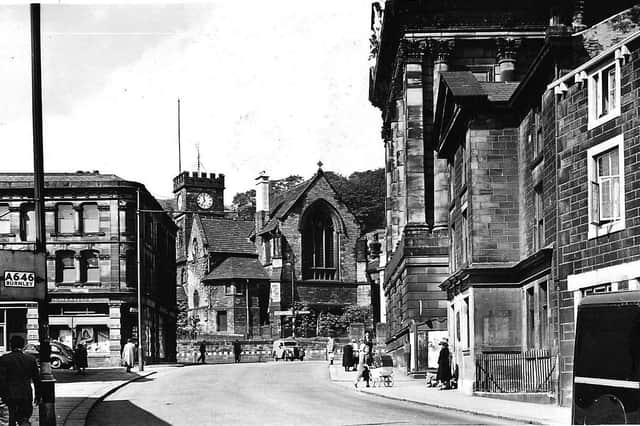I may be from 'over the border' but I will always be a Claret/ Dave Thomas column


I’ve been Claret ever since. 1957 to be precise.
We lived in Todmorden, a place in the 50s that was all grimy mills and terraced rows. Steam trains belching out black smoke clanked through the valley; you could play football in the road, fire a catapult at the post office van, (I got walloped for that) or throw stones as far as you could across the canal and try and hit the Co-op windows.
At the age of seven, not quite hooliganism but almost. In the old banger we had, an ancient Ford Prefect, we went to the football. It was a 40-minute journey to Turf Moor. We always parked on Mizpah or Lebanon Street where there was always room to park because most people came on the buses. There were no yellow lines, they hadn’t been invented. Neither had surly traffic wardens.
Advertisement
Hide AdAdvertisement
Hide AdThis little car, it only had three gears and could only do 50 going downhill, chugged along the Cornholme Valley and up through the Cliviger Gorge, up past the Kettledrum and then down to the ground. As we lurched along there was always that sense of anticipation and we always thought Jimmy Mac would win us the game.
Bless that car; it even made it to the South of France one year, laden with luggage and tinned food, hugely overloaded.
I think of that old car and then the old joke. Fella in the pub is telling his mate. “Got this old banger.
It does OK ‘til it has to go uphill and then it won’t get past 30. Trouble is we live at number 40.”
Advertisement
Hide AdAdvertisement
Hide AdTod today is famous in a way for the old green buses that were unique because of the double-deckers that were made with lower than usual roofs so they could get under the low bridges up the Cornholme Valley.
My father, a man with Dickensian values, was filled with admiration for old Bob Lord and would look across to the stand opposite with admiration. It was a time when owld Bob was always in the newspaper for some curmudgeonly reason. But did my father know that the Cobbold Brothers, chairmen at Ipswich referred to Lord as “old b@@@k chops?' Had he known he would have been apoplectic with rage.
He was a teacher in Todmorden, in an age when a teacher still carried some clout in the community, respected and, in a small town known, by just about everybody. It caused me some grief I have to say.
Many a lout, who suffered in his classroom from his Victorian ways and insistence on learning tables, took it out on me.
Advertisement
Hide AdAdvertisement
Hide AdIn a small town there was nowhere to hide. I grimaced and put up with it and if they weren’t twice as big, fought back. Sometimes they were just too big so I ran. Sometimes they were girls. I could handle that.
They say once a Calder Valley man, always a Calder Valley man and that is true enough. The man might get out of the valley, but you won’t get the valley out of the man. We roamed the hills and moors, made dock pudding and picked bilberries. The station was my favourite place in those pre-Beeching days of snorting engines. We used to put pennies on the line when the station master wasn’t looking, and then see how squashed flat they were after a train had run over them.
It was set above the town at the end of the great viaduct and from it you could look across the valley. Across from the station was the Queen’s Hotel where many a young footballer from the northeast got off the train and they were then taken by Albert Maddox in his car to Burnley.
They looked in horror at the chimneys and smoky gloom. I suspect Albert hadn’t the heart to tell them that when they got to Burnley, it would be even worse.